Fengqing Daohua Xiang Raw Pu-erh Cake Tea 2013
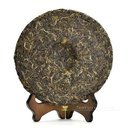 |
|
Commercial Description
...The taste experience of this tea can be divided into three sections: the first two steeps taste weak, for the flavor to open up in the third to fifth steeps with a vaguely astringent aftertaste, but this soon turns to a lingering sweetness. From the sixth steep and on this bitterness weakens, and the first taste up-front is a bittersweet mouthwatering sensation...
Ratings & Reviews
Page 1 of 1 page with 1 review
 90 Aroma: 7/10 Flavor: 4/5 Value: 4/5
90 Aroma: 7/10 Flavor: 4/5 Value: 4/5Whiskey (45 reviews) on Nov. 24th, 2018
When I first tried this tea, I used a Western brewing method and it came out terribly. At that point in time, I also had very little experience with the bitterness of younger raw pu-erh. Well, I let some samples of this sit around for about six months to a year and gave it another try. I was so happy I tried this again.
Using the Eastern method directions provided by TeaVivre (though sometimes I'd use less time if it was a little too bitter for me), the first cups were more bitter, but the bitterness eased away to a slightly mouthwatering quality. Throughout the whole experience, there was a deep, fruity note in the breath after drinking. It wasn't a taste. It was more of something you'd feel when breathing — and it would encourage you to breathe more deeply. This kind of fruity note is something I found in a raw pu-erh that I'd aged myself for eleven years. It's a good note with a nice strength. I'm glad that I gave this tea another try and withstood that initial bitterness to get through to this note more. The tea also imparts a great, nourishing, fortified feeling. Its effect is very even and it's relaxing at the same time as uplifting. So, it's markedly different from a caffeinated feeling (which can make you feel wired or jittery). This is more like being nourished after a big meal, because there's the relaxing quality and then there's also that you feel more strengthened.
If you don't like bitterness, either skip the first few cups or wait before giving this a try, because it is bitter. I don't mind bitter notes so I didn't have a problem with it. I just eased back the time a bit if it was uncomfortable or overwhelming. Unlike the Fengqing Old Tree Raw Pu-erh Cake Tea 2013 (also from TeaVivre), I felt little or no roughness in the throat with this one. Considering that they're both the same age, I'd say that this one is more even than the Fengqing Old Tree (which not only had a more rough taste, but also a less even effect). I think that this Fengqing Daohua Xiang would not only be better for drinking right now, but also a tea that would age into a delicious taste much sooner. If you're going for something more long-term, the Fengqing Old Tree would be more appropriate for that.
Note: Watch out for small leaf pieces. In the samples I got, there were many large leaf pieces and I brewed them first. I got really good sessions from those. But, when I brewed the small leaf pieces remaining, the tea was mostly just bitter, with much less of the delicious fruity notes. It also edged on being a bit rough. So, take care when using smaller leaf pieces. Consider brewing for much less time or trying to mix in larger leaves to cut the bitterness.
Page 1 of 1 page with 1 review
More Pu-erh Tea from Fengqing, Yunnan, China from TeaVivre
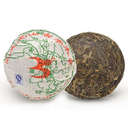
2006 Fengqing Raw Pu-erh Tea Tuocha
| Style: | Raw (Sheng) Pu-erh |
| Region: | Fengqing, Yunnan, China |
| Caffeine: | Caffeinated |
| Leaf: | Compressed |
80
3 Ratings
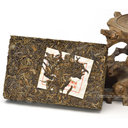
Fengqing Zhuan Cha Raw Puerh Brick Tea 2005
| Style: | Raw (Sheng) Pu-erh |
| Region: | Fengqing, Yunnan, China |
| Caffeine: | Caffeinated |
| Leaf: | Compressed |
36
3 Ratings
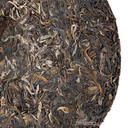
Fengqing Paddy Flavor Raw Pu-erh Cake Tea 2006
| Style: | Raw (Sheng) Pu-erh |
| Region: | Fengqing, Yunnan, China |
| Caffeine: | Caffeinated |
| Leaf: | Compressed |
2 Ratings
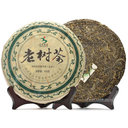
Fengqing Old Tree Raw Pu-erh Cake Tea 2013
| Style: | Raw (Sheng) Pu-erh |
| Region: | Fengqing, Yunnan, China |
| Caffeine: | Caffeinated |
| Leaf: | Compressed |
2 Ratings

